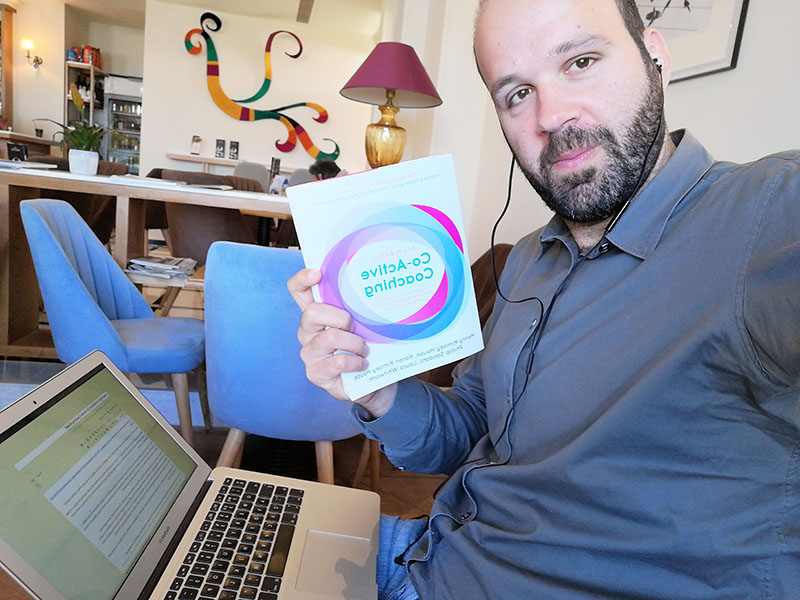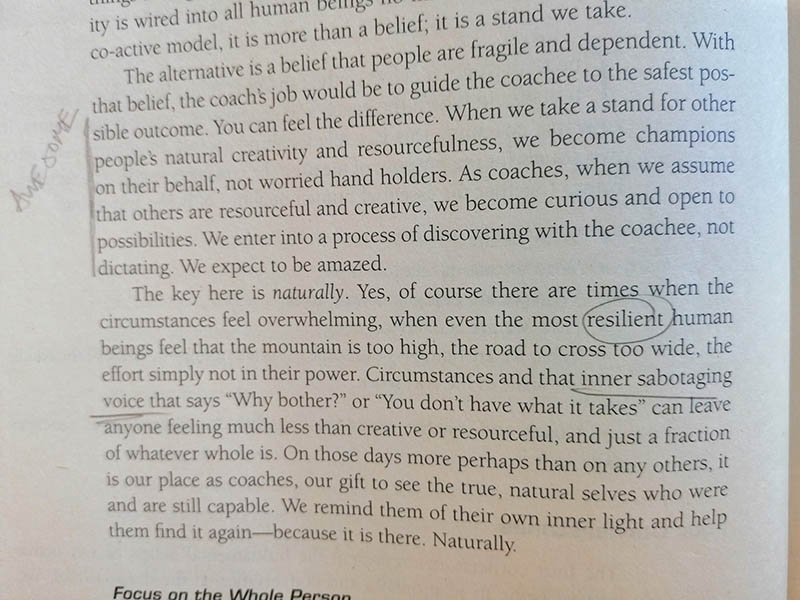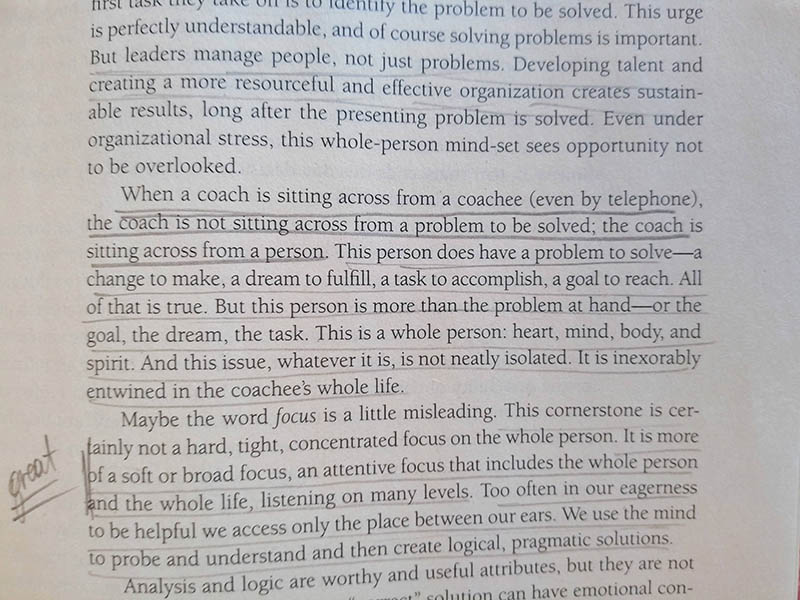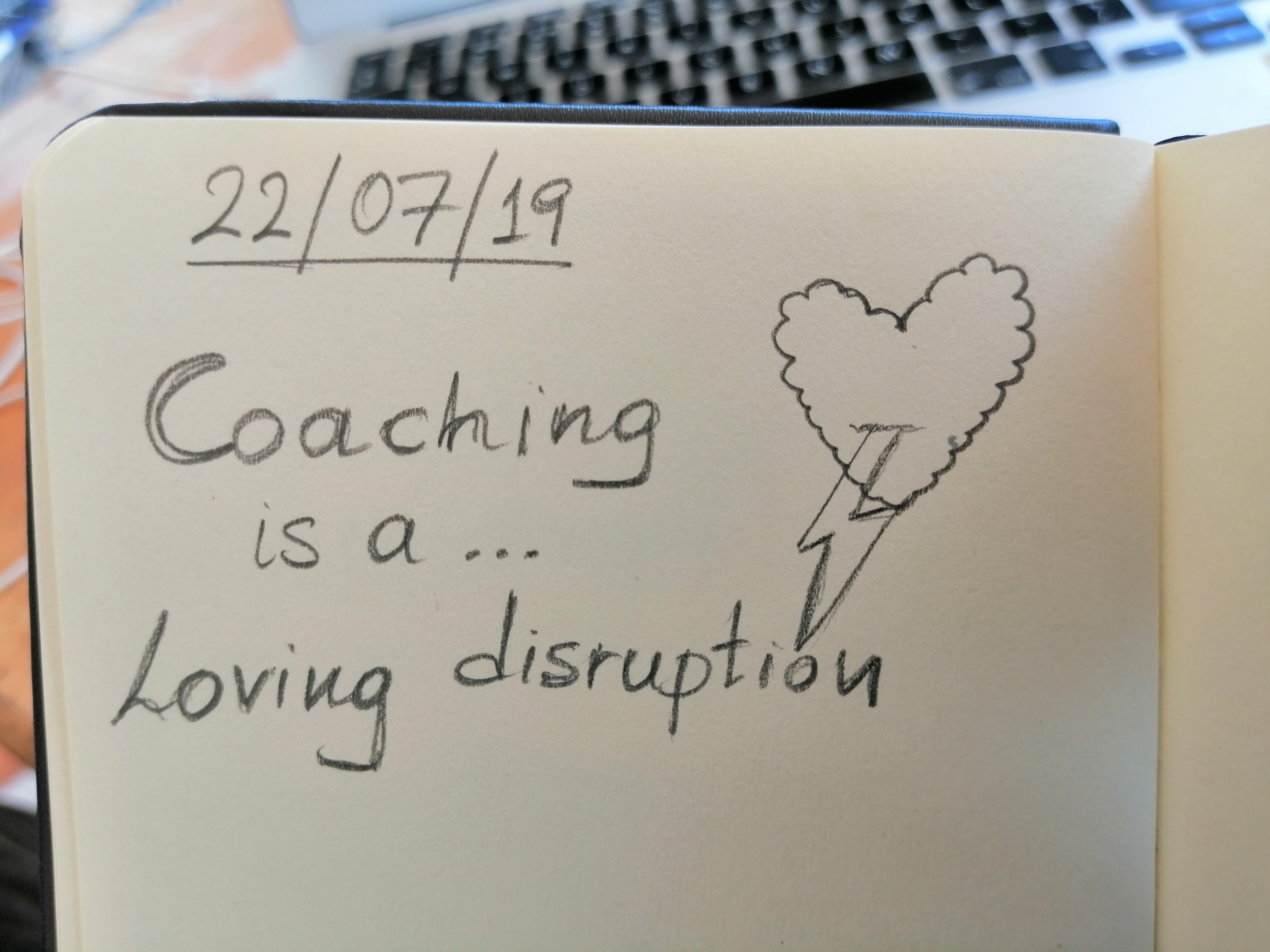Coaching Foundations (Co-Active Coaching Model)

The below notes come from the book Co-Active Coaching – The Proven Framework for Transformative Conversations at Work and in Life.
Why co-active coaching? Because coach and coachee work together, ie. form an alliance, for the sake of the coachee’s agenda.
When most people hear the words “coaching” or “coach”, they instantly think of a professional coach coaching his client 1-1 trying to solve a particular problem that the client faces, ie. lose weight, get higher up on the career ladder, etc. Coaching is much more than that. It’s deeper.
First, the above book is useful not only to a coach trying to improve his coaching skills but to anyone who wants to have better conversations and connect on a deeper level with others. Better conversations that take place at work among colleagues, at home with your partner and children, or in a coffee shop chatting with a friend.
Second, coaching is not about solving problems, although problems may be solved. It is not primarily about improving performance, attaining goals, or achieving results, although all of that will certainly happen over time in an effective co-active coaching relationship. Coaching is about discovery, awareness and choice. It is a way of effectively empowering people to find their own answers, encouraging and supporting them on the path as they continue to make important decisions.
These qualities must be present in a coaching conversation: respect, openness, compassion, empathy, and a rigorous commitment to speaking the truth.
There are certain assumptions underlying the conversation as well. We assume strength and capability, not weakness, helplessness, or dependence. This is crucial here. The opportunity for growth is much greater when the coach assumes (and the coachee subsequently) that the coachee is strong and capable, not weak, helpless or dependent.
A co-active coaching conversation has certain beliefs built into it: that every situation has possibilities and that people really do have the power of choice. This is a way of being in relationship and being in conversation that shifts that focal point of the conversation from who has the ran to what is possible. It shifts the conversation from simply analysing and problem solving to working together more effectively and learning to be more resourceful so that future issues are actually easier to address because the relationship is resilient and creative.
This works because it taps into a human need for collaborative, co-active conversation, which is so different from the usual authoritarian, superior/inferior experience based on roles and entrenched positions. In this growing awareness of “We are in this together”, the conversation shifts to a place of common purpose searching for possibilities.
A coach listens not only to the words but also to what is behind the words and even to the spaces between the words. Sometimes there is more information in what is not said that what is said.
A coach listens to the very best in others, even when the others can’t hear it in themselves.
Why people seek out coaching
- People want things to be different.
- They are looking for change or they have important goals to reach.
- They want to be more satisfied at work or in life.
- They want to develop skills to help navigate life’s changes.
- Sometimes people want more from life (more impact in their work, more security) and sometimes less (less stress, financial pressure).
- They want a better quality of life–more fulfilment, better balance–or a different process for accomplishing their desires.
A coach engages in a conversation not as a counsellor or problem solver, but in a co-active way as a companion on an unexpected journey.
People are Naturally Creative, Resourceful, and Whole
When we take a stand for other people’s natural creativity and resourcefulness, we become champions of their behalf, not worried hand holders. As coaches, when we assume that others are resourceful and creative, we become curious and open to possibilities. We enter into a process of discovering with the coachee, not dictating. We expect to be amazed.
Focus on the whole person
How does the quality of the conversation change when you start with a belief that your coworker, son, or daughter is naturally creative, resourceful, and whole? Capable? It’s possible that conversation might change from giving advice to being curious: asking more questions and inviting the resourcefulness of that person. Think about how your awareness shifts when you see the connection between what might seem like ordinary daily business and how this one issue is interconnected with that person’s life in ways you probably won’t ever know. Those ripples may not be visible in the moment, but they are real.



